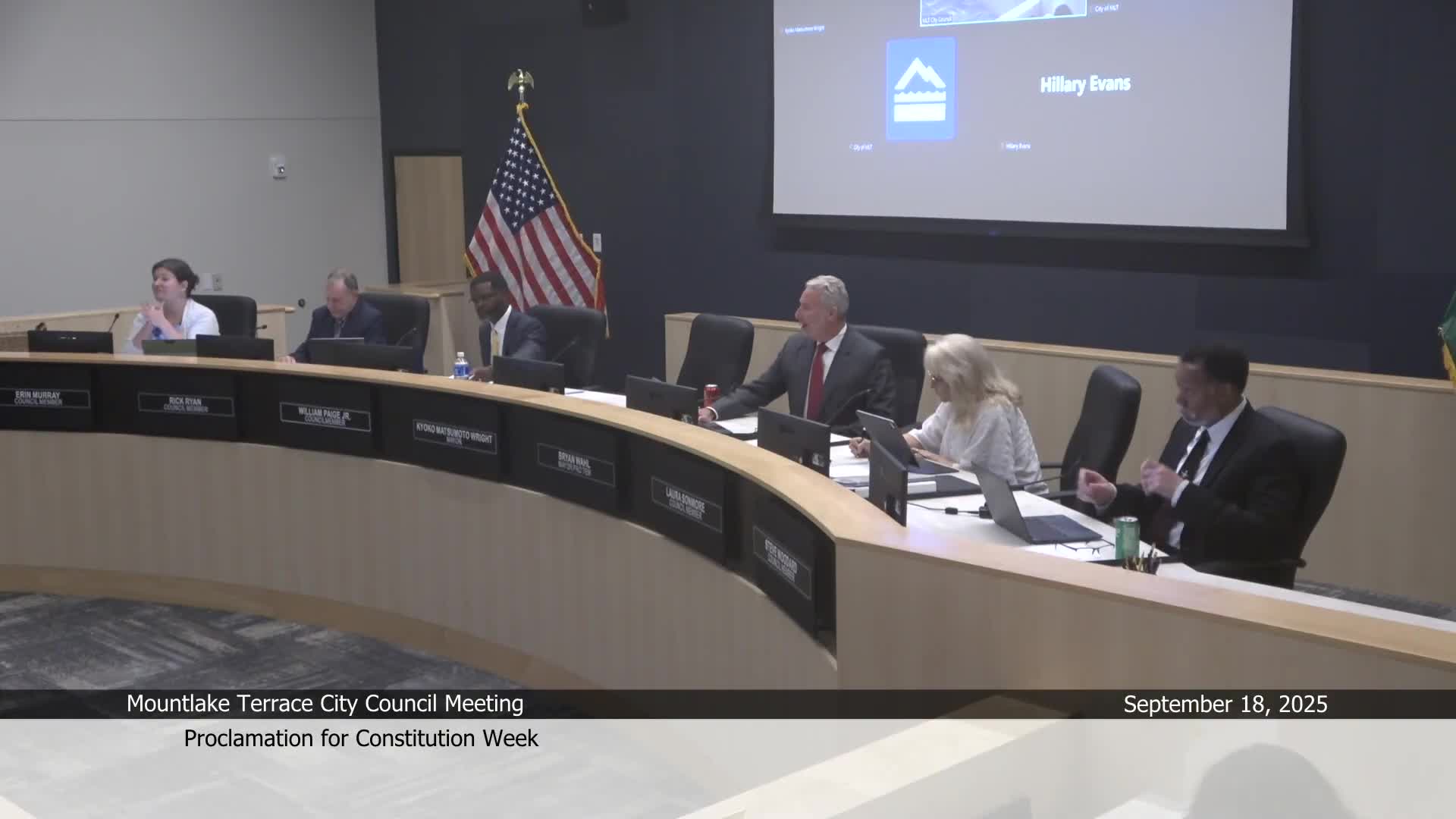Article not found
This article is no longer available. But don't worry—we've gathered other articles that discuss the same topic.
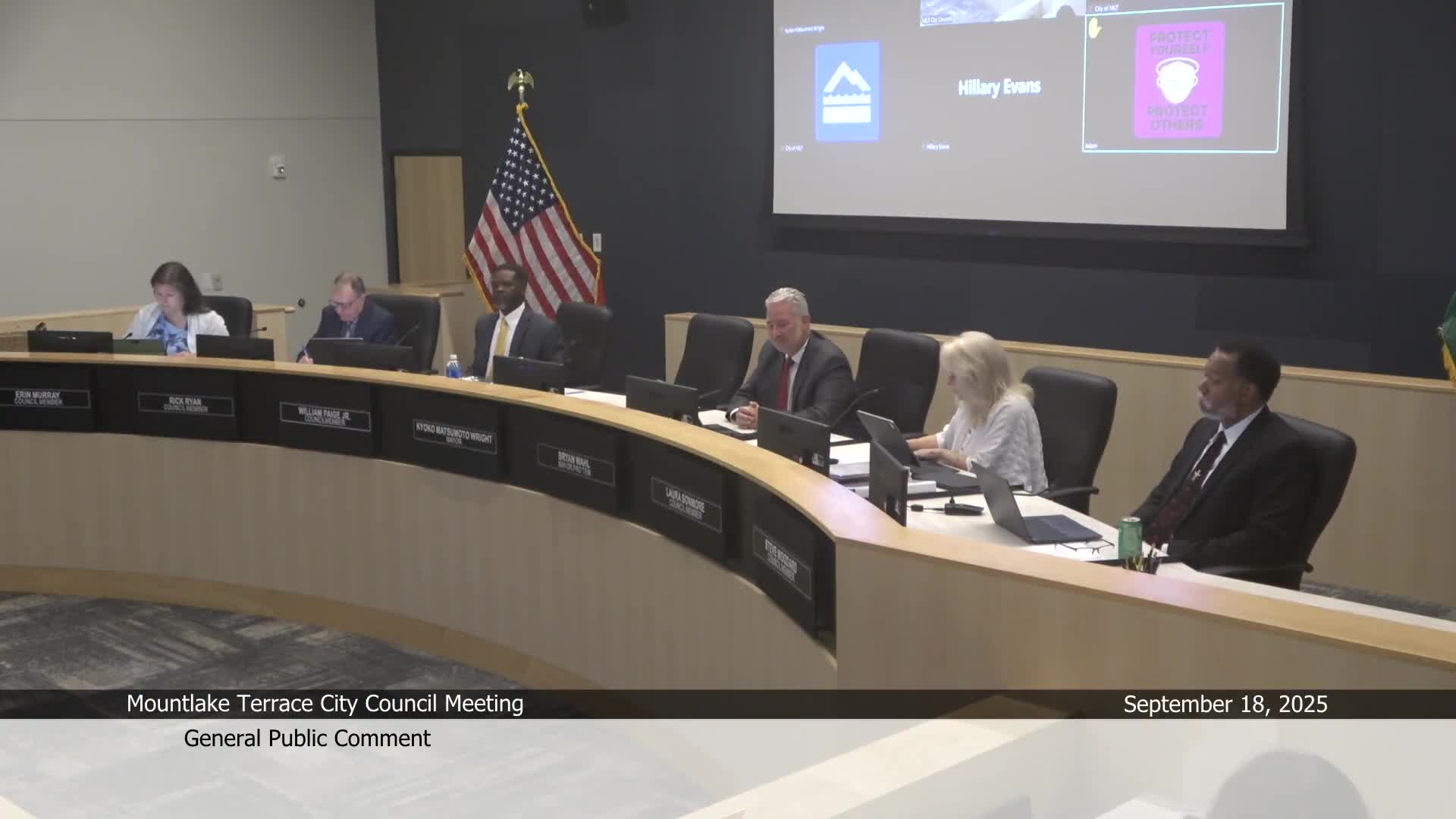
Residents urge council to halt plan for Flock surveillance cameras, cite data‑sharing and civil‑liberties concerns
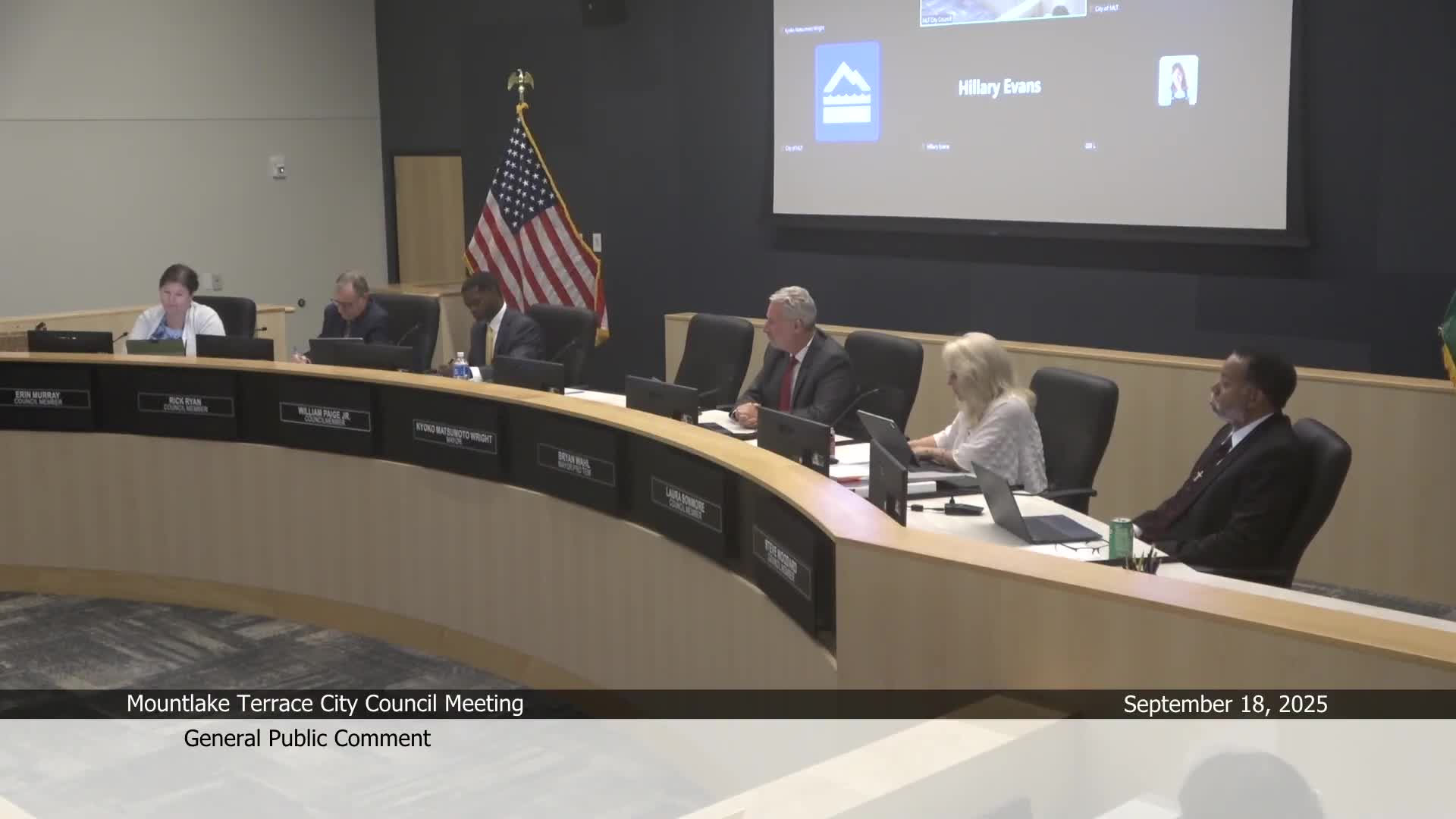
Mountlake Terrace resident says home‑business licensing process caused months of enforcement and legal fees; city manager to follow up
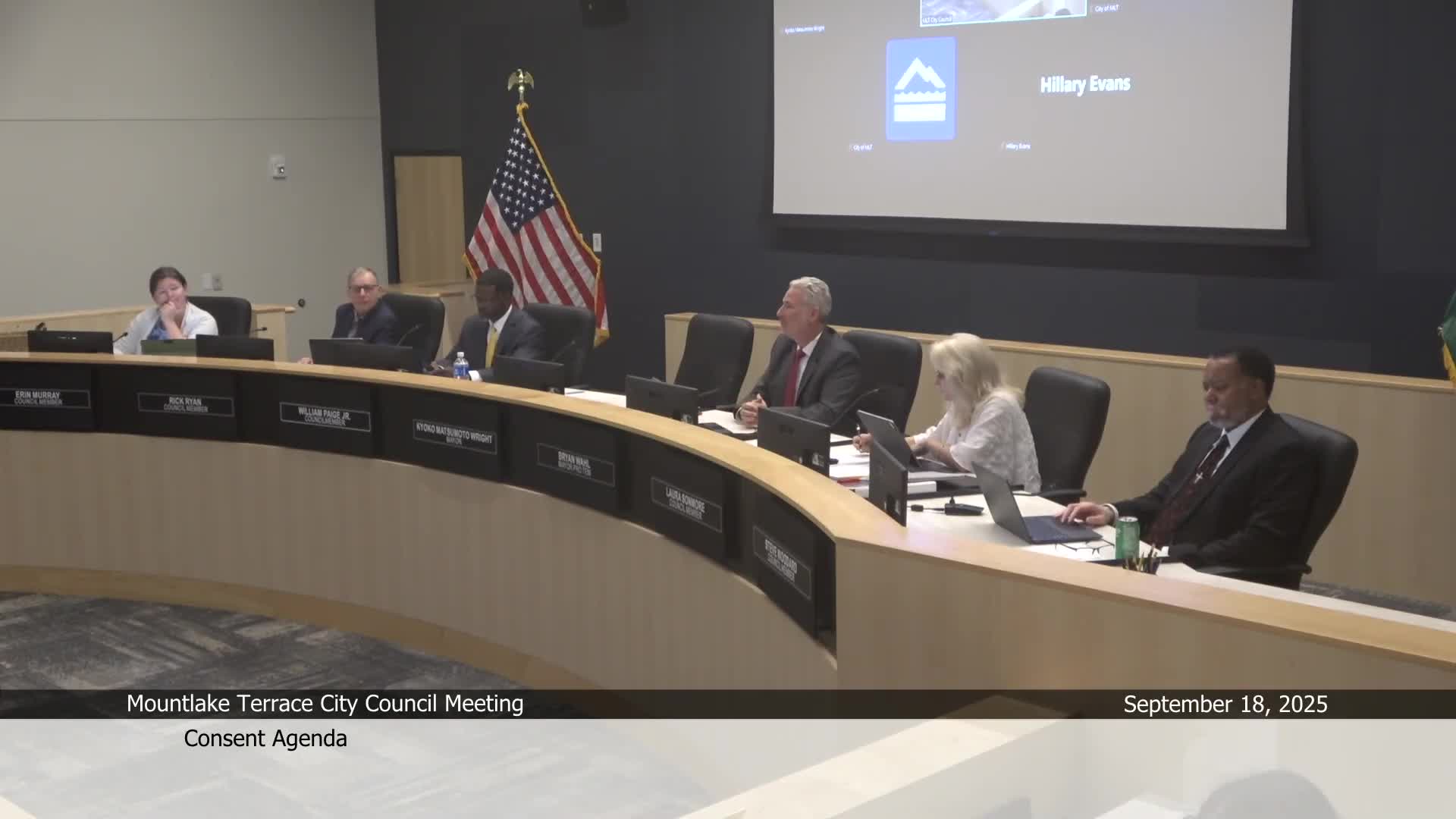
Council approves $68,000 professional services agreement for citywide branding despite one dissenting council member
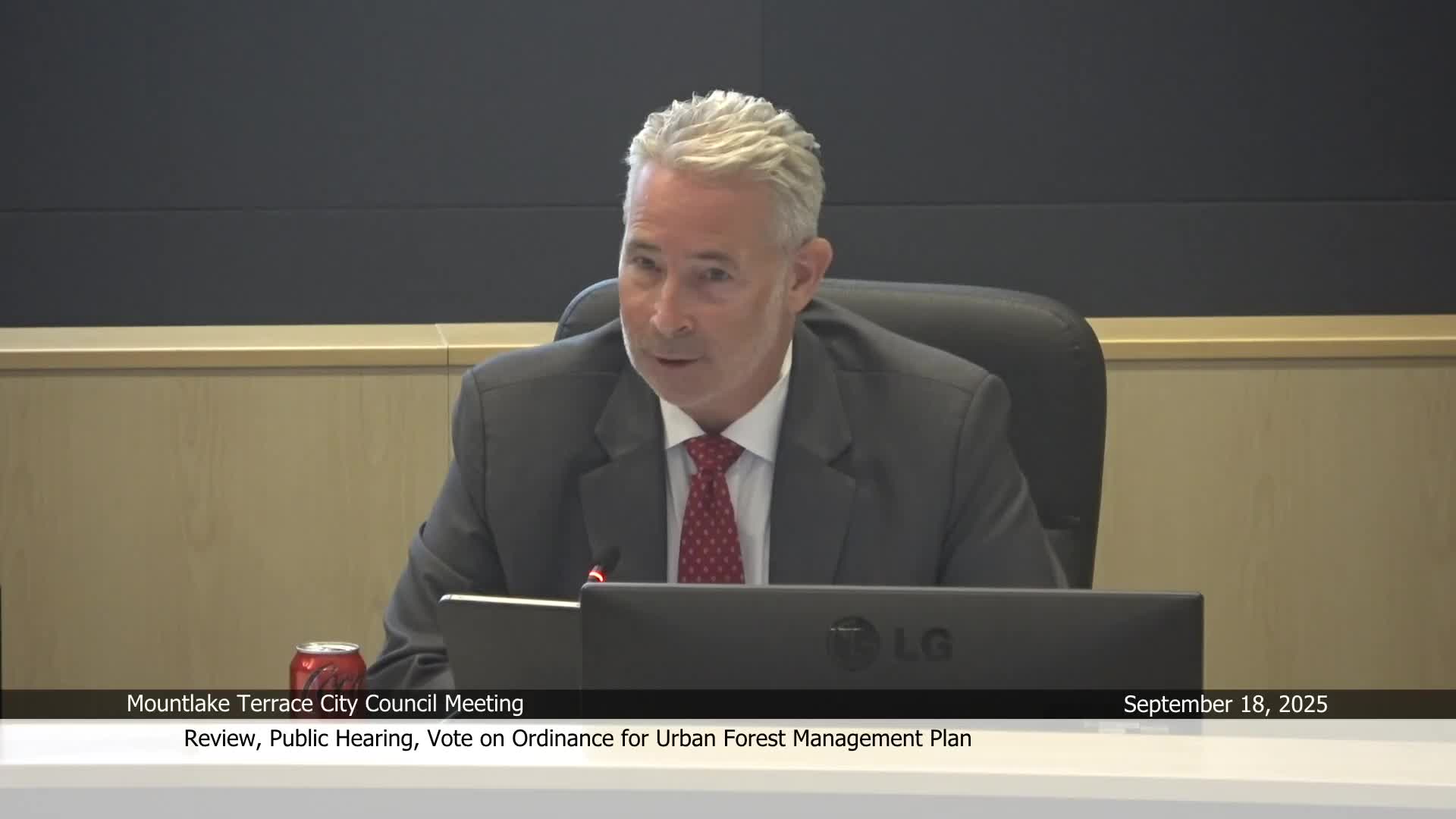
City manager warns rising public‑safety costs will strain Mountlake Terrace budget
